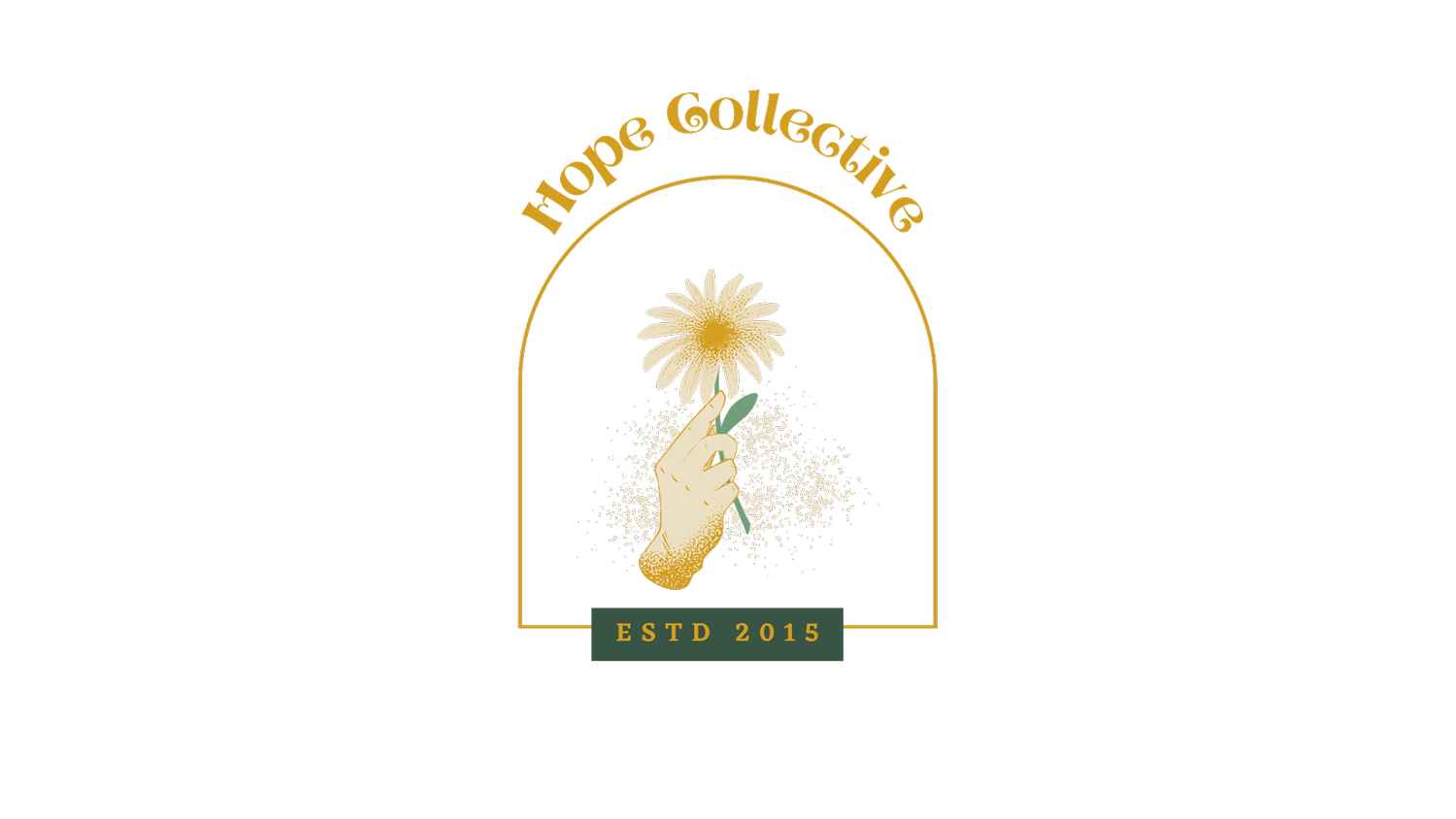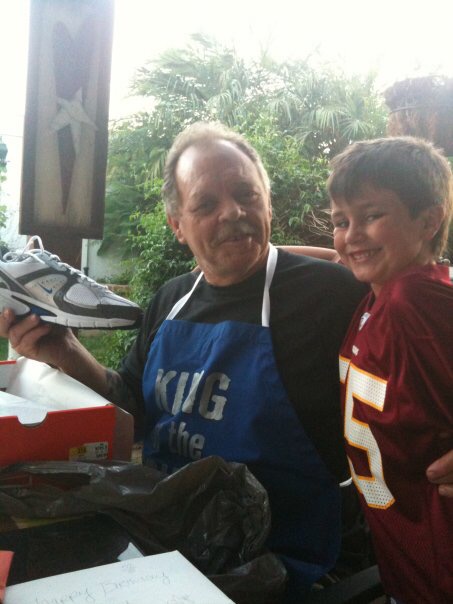I want to preface this article with a disclaimer: I am making this all about me. Just hear me out. While it may seem like I say “I” one too many times, I feel inappropriate saying “you”. If you’re reading this article, it may be because you’ve lost your dad. I’ll be honest in saying, when I lost my dad, I didn’t want anyone’s advice. I rolled my eyes, scoffed, and even said the occasional curse word in my mind when people offered me their unsolicited opinions on how long it would take to feel better. “It just takes time,” “It’ll get easier,” “Trust me. It’ll be ok.”
I appreciate that everyone’s grief journey is different. So I’m not here to offer advice. I’m here simply just to share my story, and if you happen to benefit from any part of it, I’ve done my job.
My dad is a girl dad. Growing up, he was the only man in the house. A wife, two baby girls (one being me - hi, I’m Jess), and three girl cats. He made our lives effortless. He was our friend, math tutor, tech guy, softball coach, insect killer, car mechanic, plumber, personal chef, tax accountant, decision maker, gps, grocery shopper, and you bet, many times, our bank. He held many titles and claimed many responsibilities. Not because he had to, but because he wanted to.
In January of 2014, Dad passed away at the age of 54. He came down with the common flu which developed to pneumonia. He drove himself to the hospital for a casual checkup. He even posted a hilarious selfie in his hospital gown. That visit turned into an eight day stay in the intensive care unit. Never - not once - did I expect us to have to drive his car home without him.
My dad’s death was shocking. Unexpected. Life altering in a way I could have never even fathomed before that day. The eight days spent solely in the hospital was an emotional roller coaster, flowing between hopeful highs and terrifying lows, only to end in the worst case scenario. I felt like I was standing on a violent battlefield of emotional warfare.
The following weeks were numb. My mom, my sister, and I were going through motions: breaking the news, planning arrangements, accepting condolences, etc. I use the term “etcetera” because much of it is a blur. Once the initial phase of losing Dad passed, we were then left to navigate life without him.
I had one thought: how?
How is this a “normal” part of life that everyone has to experience? How do people live through this? Will I live through this? How do I take care of Mom and my family? As time moved on, the questions became more specific.
How do I get my oil changed - is it a synthetic blend or full synthetic? How do I fix my computer with this virus? How do I use a drill? How do I do my taxes? How am I going to kill this spider in my kitchen? How long do I cook salmon for? How to I fill nail holes in my apartment walls? How do I negotiate a new car lease?
Many times, these questions stopped me in my tracks. They knocked the wind out of me and brought me to tears. Now, six years later, sometimes they still do. But somehow, I’ve started to find joy in these moments. How?
1. I ALLOW THESE MOMENTS TO BRING MEMORIES.
Rather than feeling angry, sad, distressed, or upset, I’ve learned to live in the moment of what these situations bring me. For example: It is incredibly different not to roll my eyes and curse the world for its insensitivity when I walk by the Father’s Day cards at Target. Then I pause, take a deep cleansing breath, and remind myself of the loud singing cards we used to buy my dad every year. I get a giggle out of the fact that he genuinely enjoyed them.
2. I RECOGNIZE MY DAD’S PRESENCE.
At first, I told myself I was searching for signs. I now accept that my dad shows up in many ways. So when a hawk soars by, the lights spontaneously flicker, a man walks by that looks curiously like him, or I have a dream of him, I know Dad’s with me. These signs bring me comfort, peace of mind, and hope.
3. I PUT WORDS TO MY FEELINGS.
After years of claiming “therapy won’t change the fact that Dad is gone,” I finally started talking about my grief. Speaking of specific and horrific moments revokes their power over me. Being asked a question about my emotions allows me to decipher what triggers such feelings. Discussing the impact this loss has had on my life teaches me how to nurture myself. Explaining my nightmares has revealed their meaning. Therapy, journaling, women’s or moon circles, and talking with loved ones have all given me the chance to speak my mind.
4. I HOLD MY EMOTIONS GENTLY.
Sometimes I feel solid, and others I crumble. I can celebrate in my dad’s memory then suddenly be halted by a panic attack. There are moments that I am ready to grow, and others I welcome the sadness because it feels familiar. It’s comfortable. I often battle between two thoughts: I can’t be happy because that portrays that I’ve forgotten about my dad’s death, but on the other hand, my dad wouldn’t want me to be stuck in this constant state of sorrowful heartache. I feel a never-ending sense of conflict. And you know what? That’s ok. Grief is not linear. It comes and goes in waves. I try my best to feel and flow with the tides.
5. I EMBRACE THE LESSONS MY DAD TEACHES ME FROM HEAVEN.
Since my dad’s passing, I have learned how to comfortably (and fearlessly) travel by plane, live out of hotels for work, travel alone, use a drill, hang floating shelves, and make the family’s teriyaki chicken and sunomono recipe. I have negotiated a car lease, moved houses, killed a bug here and there, gotten my oil changed without being conned into six unnecessary services, and completed my taxes (more than once). I have finally learned when to stop before I’ve had one too many drinks, and actually acquired a taste for bloody mary’s. If it weren’t for my dad, I wouldn’t have had the foundational knowledge to accomplish any of these things. Like I said, Dad did things because he knew we could but felt like we shouldn’t have to, not because we couldn’t do it ourselves. With every new lesson I learn and task I accomplish, I am introduced to the strong, stable, and independent version of myself that my dad raised me to be.
Jessica Itano
Hi, I’m Jess. I’ve always expressed myself best through writing, but the practice truly became healing after losing my dad. Outside of writing, many of my other interests also align with soul searching and personal development: yoga, meditation, reading, and creating art.












